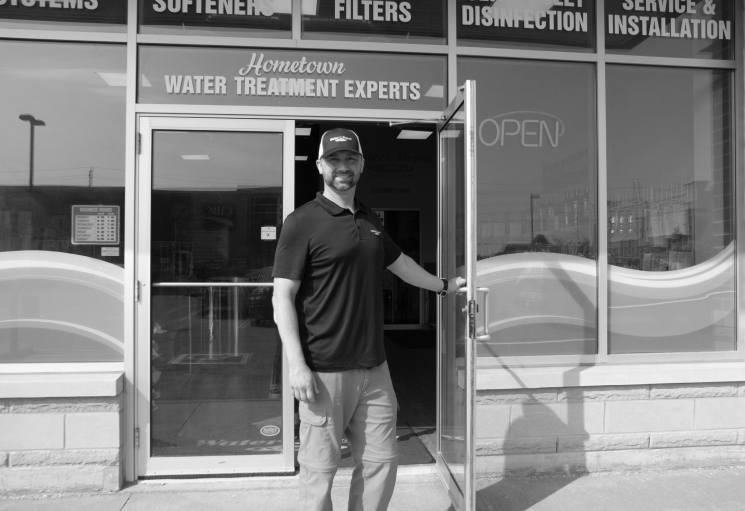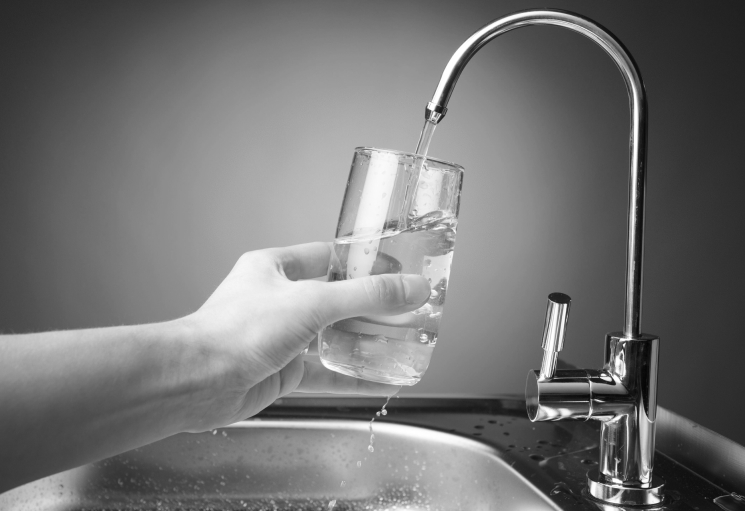USE PROMO CODE "FIRST10" TO GET 10% OFF YOUR FIRST ONLINE PURCHASE
(Applicable to online purchases made in our online SHOP only)
USE PROMO CODE "FIRST10" TO GET 10% OFF YOUR FIRST ONLINE PURCHASE
(Applicable to online purchases made in our online SHOP only)
FAQ

Water Disinfection
- How does Ultraviolet Treatment work?
Ultraviolet rays alter the DNA of viruses, bacteria, molds and parasites so they cannot reproduce and are considered inactive. UV systems do not add any chemicals to the water.
- Which contaminants are removed by an Ultraviolet system?
An Ultraviolet system will inactivate the following microorganisms, without adding any chemicals to your water:
- E-coli
- Coliform
- Cryptosporidium
- GiardiaLamblia
- Viruses
- Cysts
- Spores
- Salmonella
- Many other microorganisms
- Do Water Depot Ultraviolet systems come in different sizes?
Yes, Water Depot UV systems come in a range of sizes to accommodate the water demands of your family.
- How often will I need to replace the UV bulb?
The manufacturer recommends changing bulbs every 12 months to maintain optimum efficiency.
- Where will the Ultraviolet system be installed?
The system is intended for indoor use and must be installed closest to the point of entry, after all other water treatment equipment, in a dry, well-lit area, with enough room to perform routine maintenance. Point of use, or single tap systems, should be installed immediately before the tap.
- Can I install an Ultraviolet system on my hot water line?
A UV system is meant to be used with cooler water temperatures and can only be installed on a cold main water line.
Water Purification
- How does a Reverse Osmosis system work?
A Water Depot Reverse Osmosis system pushes water through a series of filters and a Reverse Osmosis membrane, reducing chemicals and other impurities, leaving you with clear and clean purified drinking water.
- Once the Reverse Osmosis system is installed, does the filtered water come out of my main faucet at the sink?
Our Reverse Osmosis systems come complete with a dedicated faucet, which will be mounted to either the left or right of your main faucet.
- Does RO water taste different than bottled water?
Yes! With a Water Depot RO system your water will have a cleaner, more refreshing taste. Also, unlike bottled water, RO water has no preservatives, chemicals, or microplastics added.
- How often will I need to change the filters in my RO system?
Sediment and carbon filters should be changed once a year. Membrane filters will typically need to be changed every 3-4 years.
- What are the benefits of a Reverse Osmosis system?
A Water Depot Reverse Osmosis system reduces impurities such as:
- Total Dissolved Solids
- Lead
- Detergents
- Nitrates
- Arsenic
- Pesticides
- Pharmaceuticals
- Sulfates
- Chlorine
- Flouride
- Plus many other waterborne contaminants
The system will reduce taste, odour and cloudiness for fresh, pure drinking water and ice.
Water Softener
- Are Water Softeners harmful to modern septic systems?
Salt has been found to have no harmful effects on bacteria or the soil of the drainage field. The volume of backwash flow can range from 55 to 100 litres per week, or the equivalent of one to two standard filled bathtubs. Appropriately sizing the softener to regenerate once a week will reduce the amount of backwash entering the septic system.
- What are the main operating costs of a Water Softener?
The main cost of operating a Water Softener will be the purchase of solar salt for regeneration. Solar salt is sold in 20kg bags and can be purchased from your local Water Depot.
- Will operating a Water Softener increase my water bill?
Operating a Water Softener is associated with a somewhat higher water bill and increased well water pumping costs. The average water softener will need approximately 55 litre of fresh water each time it regenerates. To minimize costs, ensure that the unit is set to regenerate based on your family’s size and water demands.
- Will my Water Depot Water Softener be noisy?
Water Softeners create very little noise. The only sound you will hear is the movement of water through the unit during the regeneration cycle.
- Should I use a Water Softener on my outdoor taps?
Softened water is not recommended for lawn watering and other outdoor uses, as this will lead to more frequent system regeneration and higher costs. Your Water Depot Water Softener will come equipped with a bypass valve for your outdoor taps.
- What type of maintenance is required for my Water Softener?
While most softeners require little maintenance and will last for many years – problems may occasionally occur. Water Depot offers Preventative Maintenance Programs to ensure smooth functioning of your water softener. The water softener should regenerate at least once a week to assure its longevity. If your water softener is not working properly, there are several things to watch for:
- Check for salt build-up in the brine tank. If a crust has formed, remove it using a vacuum, clean with soap and water, and rinse well.
- If your water contains iron, check for iron deposits in the resin bed. If it is present, use an iron-removing product to clean the softener.
- Check the resin tank injector. If it is plugged with “dirty” salt, shut off the softener’s bypass plug, run a manual regeneration and then clean the injector and injector screen.
- Where will my Water Softener be installed?
Water Softeners are installed where the water line enters the home. A professional installer should carry out the installation.
- How does a Water Softener work?
A water softener uses a medium to exchange “ions” that cause hardness in water (calcium and magnesium) with sodium or potassium.
This occurs in four steps:- The water in the house runs through the Water Softener coming in contact with a resin bed of small plastic beads. The beads are covered with sodium or potassium ions. As the water flows past the ions, they swap places with the calcium and magnesium ions. Eventually, the beads contain nothing but calcium and magnesium, and softening stops. It is then time to regenerate the beads.
- To regenerate, the beads need to regain their sodium or potassium ions by being flooded with a salty, brine solution that is rich in sodium or potassium.
- Once completed, the calcium and magnesium, dirt and sediments are flushed from the beads and into the drain in a process called backwash.
- The final phase rinses the mineral tank with fresh water and re-loads the brine tank, so it is ready for the next cycle.
- What are the benefits of a Water Softener?
A Water Softener reduces the hardness of your water to make everyday tasks easier. With softened water, less soap is required for bathing, laundry and cleaning. Skin and hair will be less dry and clothing will be softer. Pipes, fixtures and appliances will have less staining and scale build-up, so they can operate more efficiently and last longing. Odours, caused from minerals found in water, may be reduced.
- What are The Different Kinds of Water Softeners?
Water softeners come in two different types – Timeclock and Metered. Timeclock units regenerate on a pre-set schedule, while Metered units regenerate based on the volume of water used.
- Should I buy a Water Softener for my home?
The most crucial step in deciding whether your home should have a water softener is to find out if your water is hard by allowing a Water Depot Water Treatment Expert to perform a FREE in-home water test. From this test we will be able to determine the hardness, Iron levels and Total Dissolved Solids (TDS) in your water and recommend the correct unit for your water chemistry and your family’s water demands.
- Reasons why your Water Softener may not be working
With a system that has water flowing through it, some issues may appear from time-to-time. What’s important is that they are inspected, diagnosed and treated quickly and properly.
If your water isn’t as soft as it once was, there’s a chance your water softener has a blockage. As water flows through the system, blockages can occur from minerals and salt. The brine solution that helps to reduce the hardness of your water is where the accumulation of minerals and salt can come from.
For help diagnosing and resolving the issue with your water softener, get in touch with the experts at your local Water Depot store. Our team of specialists would be more than happy to help bring your water softener back to life. Water Depot offers Preventative Maintenance Programs to ensure smooth functioning of your water softener.




